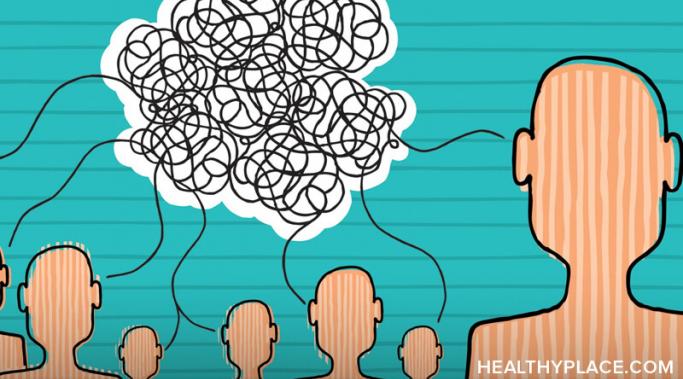Sometimes, you can't get to a doctor's appointment because you're just too sick. You might have too much anxiety to leave the house. You might be too depressed to get out of bed. You might be incapacitated by mental illness to the point where you can't get to a doctor's appointment when you need it the absolute most. This is a real barrier to mental health care that some people face. Read on for tips on what to do next.
Coping
Recently, I've had to talk about bipolar as a disability way too much. I talk about it online as part of my advocacy work, but that's not the issue. I have no trouble talking about it in general. The issue is talking about my bipolar as a disability in real life. The issue is talking about it to a psychiatrist, to a family doctor, to a nurse practitioner, to whomever I need to in order to get the help I need.
Because of bipolar and depression, I have a lack of motivation. Lack of motivation is not technically a symptom of depression according to the "Diagnostic and Statistical Manual of Mental Disorders, Fifth Edition" ("DSM-5"), but in my experience, it's highly correlated. I must admit, I harshly judge this as being a personal flaw. Here's a look at how depression and a lack of motivation are linked and how a lack of motivation isn't really a personal flaw at all.
I think hot weather makes bipolar disorder worse. It seems to do this in multiple ways. Some of this is my opinion, while some of it is based on evidence. Regardless, though, hot weather definitely makes my bipolar worse.
Bipolar often makes me very irritated, and I suggest you not talk to me about it. Okay, I'm just kidding about that last part, but what I will say is that when I'm highly irritated because of bipolar disorder, I don't want to talk about it or anything else. And while irritation doesn't sound like the worst bipolar symptom, I can attest to the fact that it definitely impacts one's quality of life.
Let me start by saying I'm not against bipolar disorder support groups. Actually, I recommend them to people and think they can be very helpful. That doesn't mean there aren't drawbacks, however. One of those drawbacks is the spreading of misinformation in bipolar disorder support groups. If you participate in bipolar disorder support groups, it's something you absolutely want to watch out for.
If you've been interacting with doctors as a person with bipolar disorder for more than about a week, you've probably learned the fact that you have to repeat your bipolar story to every doctor under the sun. It's unbelievably frustrating. Mental health professionals treat you like you have never described your bipolar disorder to another person. This is almost never the case. Usually, doctors are asking about your bipolar disorder in front of a huge file outlining your history with bipolar disorder. And repeating your bipolar story over and over is distressing and isn't something we should have to do.
I'm wondering if what I want matters with bipolar. It feels like it doesn't. This is because one of the main coping skills I use is called "act the opposite." This coping skill is pretty widely known. It simply means to do what you bipolar doesn't want you to do. This is a way of fighting against the detrimental effects bipolar can have on your life. But after years of "acting the opposite," I'm left wondering if what I want matters at all with bipolar.
It's critical to have a support system when you have bipolar disorder. Support systems, in fact, are very important for every person, but they're even more so when you have a serious mental illness. But the questions people sometimes ask are what is a bipolar support system, how do I get one and how do I use it.
I suffer from doctor anxiety. Well, I suppose I suffer from generalized anxiety, but, certainly, some of it belongs to doctors specifically. And this week, I have a great (mis)fortune of meeting two new doctors. Meeting doctors is part of healthcare and part of trying to keep yourself as healthy as possible, so, in that sense, it's a positive thing. On the other hand, the anxiety I feel around doctors is looming large.









